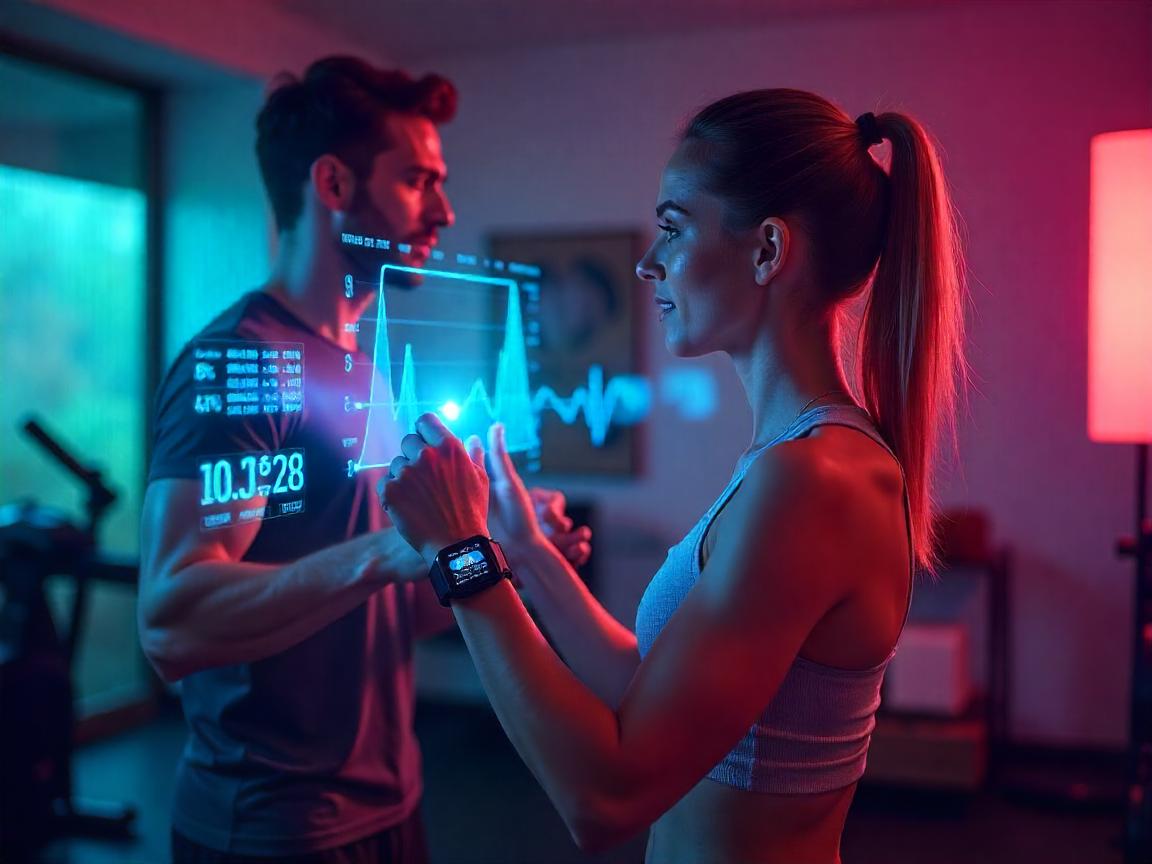
When Your Coach Learns You Better than You Do
Have you ever had an experience that your fitness app is not you? Perhaps it makes you go five miles when you have not slept a wink or encourages you to use heavier weights even after your muscles hurt. And just imagine a coach who understands that you did not sleep well, of whom you are dehydrated, someone who knows that your heart rate is high and you get adjusted in your training immediately. That is the promise of curated AI fitness coaches based on biometric feedback loops. It seems like we are entering the age where wearables such as the Apple Watch Ultra 3, Whoop 5.0, and Oura Ring Gen4 do not simply store data but think of it. And more to the point, they are using it to lead us into a healthier, safer and more sustainable ways of doing things.
Active Coaching to Passive Tracking
As opposed to the previous fitness technologies counting steps or calories, current ones read the signs of heart rate variability, body temperature, respiratory rate, skin conductivity, etc. in real-time. This allow a feedback loop to be created between you and the AI models being used behind the scenes in real time. Automatic recalibration occurs when your biometric signals change, suggesting that a person is tired, stressed, or has not recovered after an exercise. May 2025 whitepaper by the Center of Digital Health at the Stanford University stated that users of adaptive biometric-based training had better workout consistency (27 percent) and complained about injuries (41 percent) less.
Firms such as Whoop have gone miles further and developed their own, so-called, Strain Coach that monitors your physiological burden and informs you when you need to accelerate and when to stop. This is what’s going on with Nike’s internal athlete program, where AI analyzes both sleep and muscle fatigue data to micro-adjust daily training loads for elite performers. It is no standard shape of fitness, it is a biological system and it adapts to you.
Real-World Examples of Personalized AI Fitness in Action
To take a practical glimpse at things, what are some actual uses that have already been transforming workout routines:
- Post-injury application: Computer-vision-powered AI tools such as MoveAI can be used to support joint angles and body symmetry during post injury recovery to ensure clients with post-injury recoveries complete form correction accurately.
- Executive fitness: Even busy business people are taking advantage of Oura + Garmin connections to manage workouts alongside the fatigue of travel and ramping down and back up during the jet lag.
- Mental health and stress: The Fitbit Sense 2 also includes the detection of stress in real-time with the help of electrodermal activity (EDA) and provides AI assistance with cooldown activities.
In another example, a London-based triathlete Sarah L., 43, has been able to improve her performance and avoid injuries through Whoop intelligent AI brand, as it predicted the risk of overtraining five days prior to the actual development of the symptoms. She narrowly prevented a season-ending ankle sprain, by backing out of a planned long run–never mind that she does not deny that she otherwise would have disregarded the warning.
The Shift Toward Predictive and Preventive Coaching
Dr. Meera Solanki, a top-level researcher on biomedical AI at Johns Hopkins, sidestep instances of imprecise terminology:
“The future is not only following the past. It predicts it, it knows your incapacities before you know it.”
The business outlook of incorporating real-time feedback loops and predictive models in nearly all upscale wearables can happen as early as 2027. The AI+ Coach introduced by Peloton back in March 2025 already does this–adjusting to your breathing pattern and fatigue index in mid-ride. With the evolution of these tools, perhaps the future will experience transition to the fully preventative fitness systems, which will foresee injuries, as well as mental burnout.
Are We Outsourcing Our Intuition to Machines?
Nevertheless, this development begs pertinent questions. Should we outsource such a personal project to algorithms? But what about our own body awareness in case we become too dependent on the instructions produced with the help of AI? Although such tools are of great value, the risk of losing internal about oneself is a possibility. Speaking of which, biometric data is one of the highly sensitive kinds of deeply personal information– and privacy platforms and borders have not even been established on how it could be owned or abused (by whom) on various platforms.
In the end, customized AI coaches provide an idea of how much smarter we can become when it comes to fitness. They allow us to work wiser rather than harder and that is a win. However, they can be influential, but it is up to us on how we use them as any tool. Perhaps we need to accept such feedback loops–not as crutches but collaborators. Since, when, employed with discretion, they do not supersede the intuition of man, they whet it.
